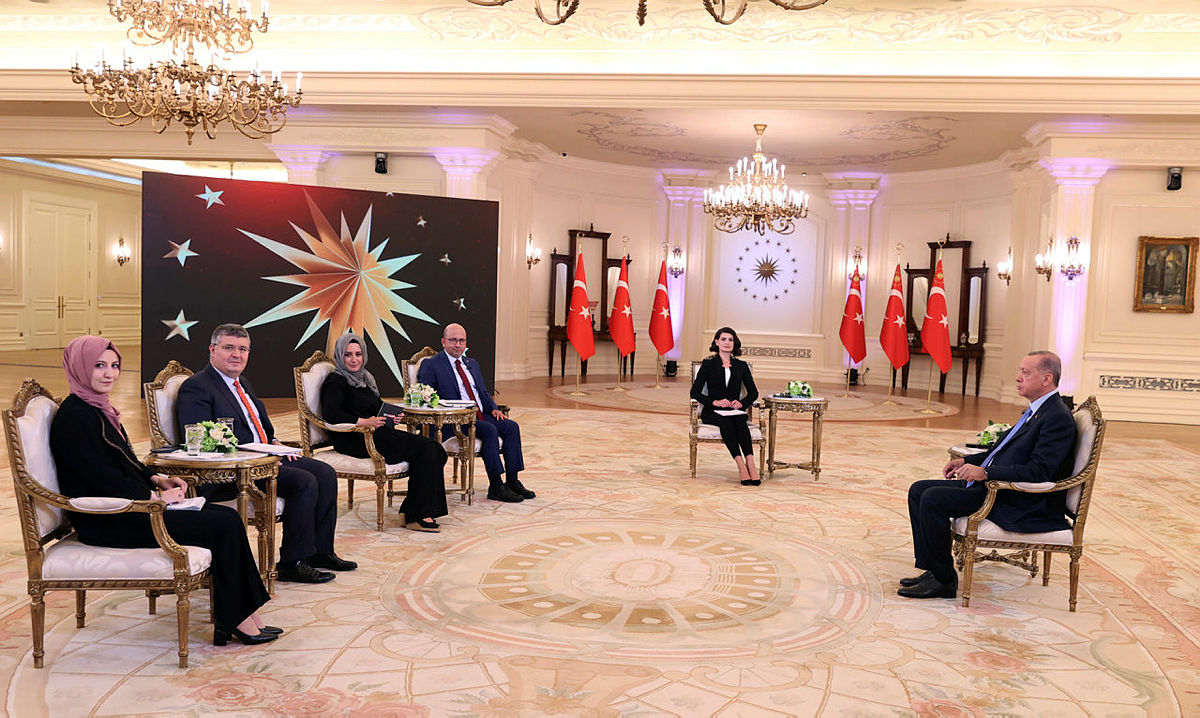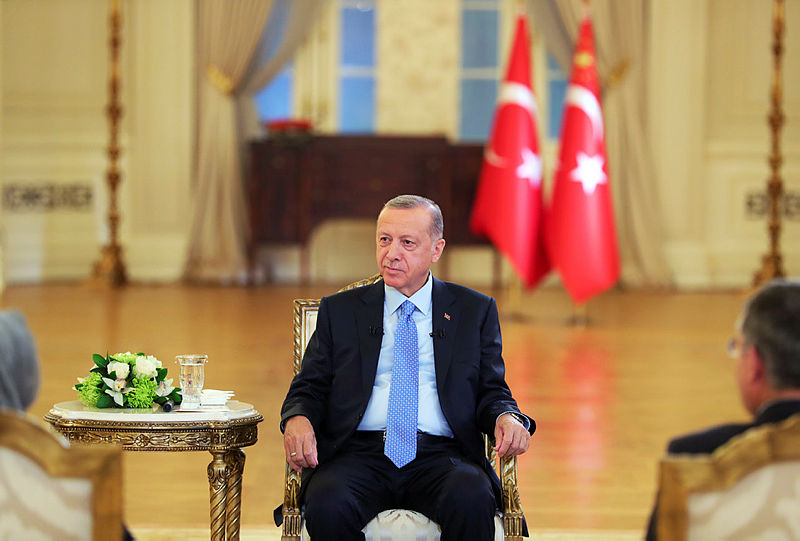Türkiye's President Recep Tayyip Erdoğan on Monday called on all parties that signed the Ukraine grain deal to respect the deal they have signed.
"We expect everyone to take ownership of their signatures and act in accordance with their responsibilities," Recep Tayyip Erdogan said in a live interview with national broadcaster TRT Haber.
"With this agreement, the effects of the global food crisis, which is reaching serious dimensions, will begin to ease," he added.
On Friday, Türkiye, the UN, Russia, and Ukraine signed a landmark deal to resume grain exports through the Ukrainian ports of Odesa, Chernomorsk and Yuzhny after months of blockage due to the Russia-Ukraine war, now in its sixth month.

Under the deal, a joint coordination center was set up in Istanbul to carry out inspections at the entrances and exits of harbors, and to ensure the safety of the routes.
Addressing Russia's weekend attack on the port of Odesa, Erdogan said it "saddens" Türkiye, adding that "a failure here would work against all of us."
Erdoğan also made some remarks about the NATO bids of Sweden and Finland, saying that Türkiye expects "concrete steps" from the two countries, and to end their support for terrorism.
"As long as they do not prevent extensions of the terrorist organization (PKK) from operating against our country, they should not expect a positive approach from us," he said, referring to the YPG/PKK, the terrorist group's Syrian branch.
"The concession from Türkiye should not be expected on Sweden and Finland's NATO bids unless Ankara's security concerns are met," he added.
Erdoğan said Türkiye insistently reminded them that they should not give support to the YPG/PKK or the Fetullah Terrorist Organization (FETO)-the group behind the 2016 defeated coup in Türkiye-and that "this is our red line."
"It's not just only Sweden, and Finland. Unfortunately, Germany is like this, France is like this, the UK is like this, Italy is like this, almost all Scandinavian countries are like this," he added, decrying Western tolerance or support for terrorist groups.
Sweden and Finland formally applied to join NATO in June, a decision spurred by Russia's war on Ukraine.
But Türkiye, a member of NATO for over 70 years, voiced objections to the membership bids, criticizing the countries for tolerating and even supporting terror groups.
A trilateral agreement signed among the countries in June stipulates that Finland and Sweden will not provide support to the YPG/PYD, the PKK's Syrian offshoot, nor to FETO, and said Ankara extends full support to Finland and Sweden against threats to their national security.
The PKK is listed as a terrorist organization by Türkiye, the European Union, and the US, and is responsible for the deaths of 40,000 people, including women, children, and infants. The YPG is its Syrian branch.
The President also talked about the terrorism issues in the Middle East, saying that Syria has become "home of terrorist groups".
He added that both Russia and Iran should take a stand against this terrorism.
Regarding the last week's deadly attack in Duhok, northern Iraq, the Turkish president said the attack was carried out by terrorists and it was aimed at disturbing the Turkish-Iraqi ties.
Erdoğan said Türkiye had informed its NATO allies, including the United States, and Iraqi authorities of its position on the attack, and added that he called on Iraq not to fall for the propaganda by terrorists.
He also criticized the United States for its support of terrorism.
On US Central Command's sympathy for YPG/PKK terrorists, Turkish President Erdoğan decried the US' continued cooperation with the terrorists in northern Syria.
"America's involvement with terrorist groups will end with it falling into the hole it dug," he said.

Erdoğan said on Monday that there is no reason for high-level talks with Egypt not to take place, as its efforts to mend ties with Cairo remain stagnant.
"Talks on the lower levels are continuing. It is not out of the question for this to happen on higher levels, so long as we understand each other," Erdoğan told state broadcaster, TRT Haber, in an interview, adding that the two countries should avoid making statements "hurting" one another.
Türkiye launched a charm offensive in 2020 to repair ties with estranged rivals, making overtures to Egypt, the UAE, Israel, and Saudi Arabia. Efforts with Cairo have so far yielded little progress, but Erdoğan said on Monday that normalization work with Riyadh and Abu Dhabi was going well.
Erdoğan also said that is out of the question for me to meet with Greek Prime Minister Mitsotakis anymore reminding and showing as a reason his remarks about Türkiye that contradicted what they have talked about before.
On the ongoing normalization process with neighboring Armenia, Erdoğan said Türkiye expects concrete steps.
"We expect them to go beyond rhetoric and take concrete steps. We are serious and resolved on the normalization process with Armenia," he added.
Erdoğan said from the very beginning, Türkiye's red line has been its close ally Azerbaijan-Armenia's neighbor and sometimes rival-adding, "We also aim to establish full normalization and good neighborly relations" with Armenia.
Ankara and Yerevan last December appointed special representatives for talks on normalizing ties, with the first meeting held in Moscow on Jan. 14. The parties have held four meetings so far.
As part of normalization efforts, this February Türkiye and Armenia resumed commercial flights after a two-year hiatus.